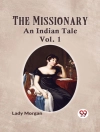Kokoro (1914) is a novel by Natsume Sōseki. Set during a period of modernization in Japan, Kokoro is a story of family, faith, and tragedy that explores timeless themes of isolation and identity. Spanning generations, Kokoro is a classic novel from one of Japan’s most successful twentieth century writers.
Tradition and change, life and death—such are the subjects of Sōseki’s masterful, understated tale of unassuaged guilt. On vacation with a friend, the narrator meets an older man who becomes a patient mentor for the young student. Soon, he begins visiting Sensei and his wife at their home in Tokyo, where they live an affluent, simple life. As the years go by, the narrator becomes aware of a secret from Sensei’s past, which his mentor promises to reveal when the time is right. When his father falls ill—around the time of the end of Meiji society—the narrator returns home to be closer to his family. As he tries to remain positive around so much sorrow, he begins to miss his Sensei, who is now getting old himself. As his father prepares to leave the mortal world, the narrator receives a lengthy letter from Tokyo, containing his Sensei’s story within. As one era merges into the next, he reads of the suffering and mistakes his Sensei experienced and incurred on his path through life, drawing them closer and leaving the narrator with some wisdom to remember him by. Eminently human, Kokoro is a beloved story of isolation, morality, and conflict from a master of Japanese fiction.
This edition of Natsume Sōseki’s Kokoro is a classic work of Japanese literature reimagined for modern readers.
Since our inception in 2020, Mint Editions has kept sustainability and innovation at the forefront of our mission. Each and every Mint Edition title gets a fresh, professionally typeset manuscript and a dazzling new cover, all while maintaining the integrity of the original book.
With thousands of titles in our collection, we aim to spotlight diverse public domain works to help them find modern audiences. Mint Editions celebrates a breadth of literary works, curated from both canonical and overlooked classics from writers around the globe.
Despre autor
Natsume Sōseki (1867-1916) was a Japanese novelist. Born in Babashita, a town in the Edo region of Ushigome, Sōseki was the youngest of six children. Due to financial hardship, he was adopted by a childless couple who raised him from 1868 until their divorce eight years later, at which point Sōseki returned to his biological family. Educated in Tokyo, he took an interest in literature and went on to study English and Chinese Classics while at the Tokyo Imperial University. He started his career as a poet, publishing haiku with the help of his friend and fellow-writer Masaoka Shiki. In 1895, he found work as a teacher at a middle school in Shikoku, which would serve as inspiration for his popular novel Botchan (1906). In 1900, Sōseki was sent by the Japanese government to study at University College London. Later described as “the most unpleasant years in [his] life, ” Sōseki’s time in London introduced him to British culture and earned him a position as a professor of English literature back in Tokyo. Recognized for such novels as Sanshirō (1908) and Kokoro (1914), Sōseki was a visionary artist whose deep commitment to the life of humanity has earned him praise from such figures as Haruki Murakami, who named Sōseki as his favorite writer.












